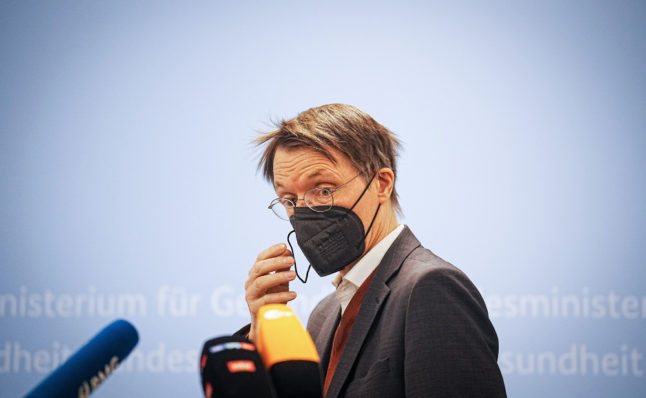For residents and staff in health care facilities and nursing homes, there will no longer be the requirement to take a Covid test or wear a FFP2 face mask. These measures are set to expire early on March 1st, instead of April 7th, as previously planned.
However, masks must still be worn when visiting doctors, clinics and nursing homes, Germany’s Health Ministry announced on Tuesday.
“Anyone who visits patients or nursing home residents, who attends doctor’s appointments, must continue to wear a mask. That should be worth to us the protection of vulnerable groups,” said Federal Minister of Health Karl Lauterbach in a statement.
This last regulation – mandatory masks for visitors to doctors and health care facilities – will expire on April 7th, Lauterbach said at a brief press conference on Tuesday. “And then a continuation is also no longer planned.”
‘Stabilised situation’
Germany has been progressively peeling away coronavirus protection requirements. The requirement to wear a FFP2 face mask on public transport ended on February 2nd.
READ ALSO: Everything that changes in Germany in February 2023
Lauterbach, who has been especially strict in his stance towards protective measures against Covid-19, said in January that “the infection situation has stabilised”.
He encouraged people to continue wearing masks voluntarily “on the basis of personal responsibility”, adding that “the virus should not be trivialised” and warning of potential longer-term impacts.
Several factors have contributed to the measures being repealed, Lauterbach said, including a higher level of immunity in the public and a reduced chance of new mutations, which meant a winter resurgence of the virus was unlikely.
The country has a current seven-day-incidence of 96 cases per 100,000 residents.



 Please whitelist us to continue reading.
Please whitelist us to continue reading.
Member comments